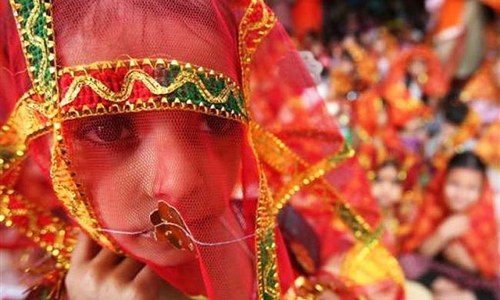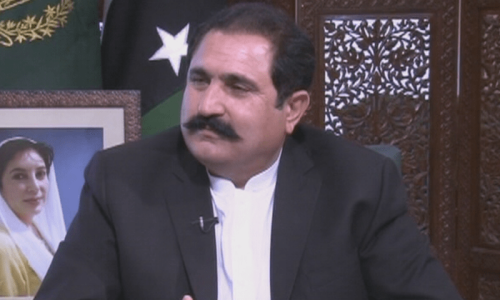EARLIER this year, 13-year-old Maria, a Christian by faith, eloped with Ali, aided and abetted by various others. Both the magistrate and the Lahore High Court dismissed Maria’s parents’ petition to restore her custody to them. They felt that under Islamic rules minors could be married after they reach puberty, and there are several decisions of the superior courts to this effect. Yet, the Child Marriage Restraint Act makes it an offence to marry a girl below the age of 16 and a boy below the age of 18. In Sindh, it is 18 years for both sexes.
The Majority Act 1875 holds that every person domiciled in Pakistan would attain the age of majority at 18 but it excludes marriage, dower, divorce, adoption and religion or religious rites and usages from this provision. In effect, a person below 18 is not be able to vote or enter into a commercial agreement but could enter into a marriage, convert from his or her religion or even divorce.
Pakistan is a party to several international conventions protecting the right of religious minorities to raise their children in their own belief. A legitimate question then is should the Muslim rule of puberty as the age of consent to marriage also apply to non-Muslims? There is growing international consensus that child marriages need to be eradicated but international conventions have been unable to concede a minimum marriageable age and have largely left this for member states to specify.
More importantly, where a child under 16 years is concerned, sex is statutory rape. In 2006, through an amendment the offence of rape was redefined. Marital rape, although not explicitly included in the definition of rape, is now part of the offence of rape. Previously, rape was defined as an offence by a man committed against a woman who was not his wife. The proviso relating to the wife has been removed. Further intercourse with a female below the age of 16 is rape with or without her consent. The law provides an explanation for this: “This accords both with the need to protect the weak, which the Quran repeatedly emphasises, and the norms of international legal obligations.”
The Child Marriage Restraint Act has been toothless for decades.
It is high time our legislature mustered the courage to outlaw child marriages in absolute terms for both Muslims and non-Muslim citizens — the Child Marriage Restraint Act has been toothless for decades now. If the only consideration for a court is the onset of physical signs of puberty it could sanction the marriage of a nine-year-old girl.
Naturally, courts should retain discretion in individual cases, where, for example, two minors elope and it would be unjust to punish the boy, or where the girl falls pregnant — but these have to be the exception rather than the norm. In most cases of conversions and marriages, it is underage girls who are preyed upon by older men aided and abetted by entire families and influential members of the community. Typically in such cases there is manipulation and abuse of power against vulnerable minors. If sex with an underage girl is rape, then those who aid and abet must also be punished.
Further, in the absence of an age limit or procedure for changing one’s religion, courts have had to tiptoe around this issue where minors are concerned. In the case of Pumy Muskan in 2019, the Lahore High Court ruled that a 14-year-old girl, whose family claimed she had been forcibly converted by her employers, should be returned to the care of her family.
It ruled that a 14-year-old did not have legal capacity to change her religion but her conversion was not invalid since it was a matter of her personal conviction and there was no statutory authority prescribing it as unlawful. In effect the court refused to give effect to the conversion for certain legal purposes while not holding the conversion per se as unlawful. In Pumy’s case she was not married. Where a minor girl is married along with the conversion, courts have been reluctant to restore her to her parent’s custody.
India (in some states), Nepal, Myanmar, and Bhutan have all outlawed forced conversions and in some cases with more severe penalties where children are concerned. In Pakistan, in the case of the Pakistan Hindu Council, the Supreme Court observed that a law on forced conversions was not required because the Constitution guarantees freedom to profess one’s religion.
Yet, the reality is that in many areas the law as well as its implementation is unequal to the detriment of religious minorities. Courts must refrain from paying lip service to rights that are not implemented. At the very least judges must apply existing laws to protect vulnerable young women rather than use the pretext of religion to appease their own personal views.
The writer is a board member, AGHS Legal Aid Cell, an advocate of the high courts, Pakistan, and a solicitor of the senior courts of England and Wales.
Twitter: @sj244
Published in Dawn, July 7th, 2020














































